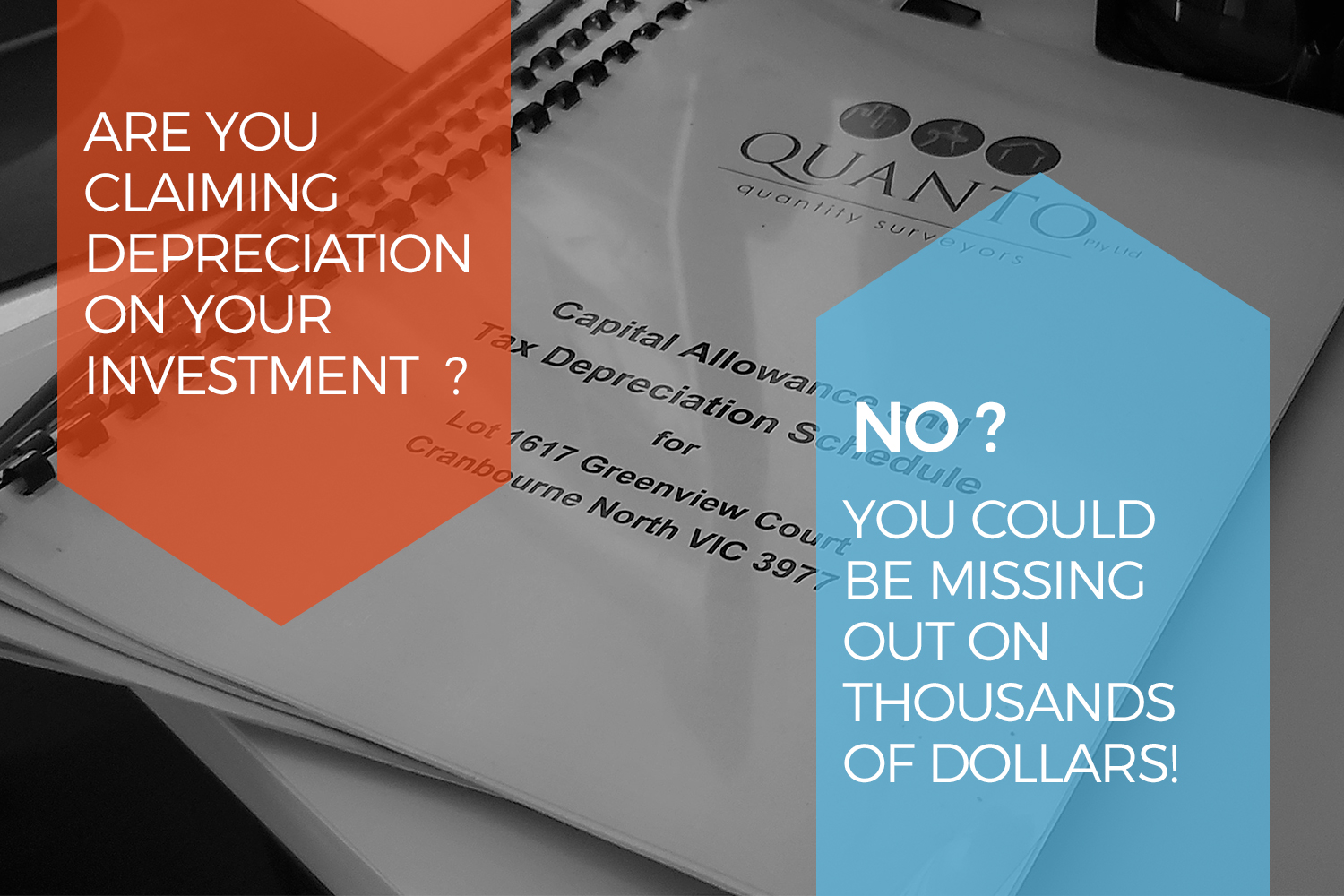If you are not currently claiming depreciation on your investment or commercial property, you could be missing out on thousands of dollars worth of deductions per financial year. These are legitimate tax deductions and if you don’t claim them, you lose them.
In this article, we cover the basics of using tax depreciation reports to claim depreciation on your investment property, and we sit down with an expert to talk about some of your most frequently asked questions.
On the go? Here’s 30 seconds of take outs:
- As a property investor you are entitled to claim tax deductions for the depreciation in value of your property as well as items such as carpets and appliances.
- Your tax depreciation report will outline the value of your house and items and how they will reduce over time. You can use this report to claim property tax depreciation every financial year for up to 40 years
- A Quantity Surveyor is a registered professional who specialises in creating tax depreciation reports.
Keep reading >>
As buildings age, they wear out and depreciate in value. Over time items such as carpeting, kitchen appliances and hot water systems (to name a few) will eventually need to be replaced. If you own an investment property you can claim a tax deduction for the cost of these items (as well as the building itself) spread out over their expected effective life.
A tax depreciation report includes a depreciation schedule outlining the value of your tax-deductible depreciating items and how they will reduce over time.
Why do I need a tax depreciation report?
As a property investor, your tax depreciation report is an essential tool that allows you to take full advantage of the tax deductions available to you under the tax act.
Having a tax depreciation schedule created ensures you are receiving the maximum possible deductions and provides a summary of both methods of depreciation available to you (diminishing value and prime cost). Once you have a tax depreciation report, you can use it to claim property tax depreciation on your property every financial year for up to 40 years.
What items can I claim depreciation on?
Under the ATO rulings, depreciation is divided into:
- Plant and Equipment items (Division 40): assets which can be easily removed from the property.
- Capital Works (Division 43): the building’s structure. This deduction is only available on properties constructed after 1982 (non residential) and 1987 (residential).
Who can create a tax depreciation report?
The ATO rulings have been put in place to protect property investors and ensure they receive the best advice on property depreciation. Because of this, the ATO will only accept tax depreciation reports made by registered quantity surveyors.
A quantity surveyor is a professional who measures up and calculates the number of materials needed for building work, and how much they will cost.
If you are looking to get a tax depreciation report and schedule created we recommend:
FAQ’s about tax depreciation
I asked Glenn Cartwright, Director and founder of Quanto quantity surveyors to answer to some of our investors’ frequently asked questions about tax depreciation reports. Here’s what he had to say.
I have an older house as an investment property. Is it too old to justify getting a tax depreciation report?
No. This is only true for the original structure of the house. Any additional works carried out after 1985 do qualify for deductions. This can mean anything from a large extension to a kitchen or bathroom upgrade, new tiling or even external works.
We generally find that houses built before 1985 have had at least some renovation work that will substantiate a report being prepared. Upon inspection, our experienced quantity surveyors can identify any additions, estimate their cost and include them in your report.
We guarantee that if we can’t find enough deductions in the first full year alone to benefit you (usually around $2,000), we won’t charge you a cent.
Why can’t my accountant prepare a tax depreciation schedule?
While your accountant may be an expert in taxation, they are not qualified to estimate building costs to be used for depreciation, and they almost certainly wouldn’t inspect your property. The ATO recognise quantity surveyors as the qualified professionals to assess building costs to be used in depreciation.
My accountant told me it’s not worth getting a tax depreciation schedule.
We hear this quite often and while sometimes it may be true, we find 99% of the time it is definitely worth it. If you don’t claim these deductions then you could be missing out on hundreds or even thousands of dollars in legitimate tax deductions. It’s like throwing money away, even our fee is fully tax deductible. If your accountant tells you it’s not worth getting a tax depreciation schedule, contact us and we will let you know if it is worthwhile or not.
Will I need a new tax depreciation schedule every year?
No. Our tax depreciation schedules last for 40 years. The only reason you would need to get it updated is if there is a change of ownership or if you are planning any renovations.






